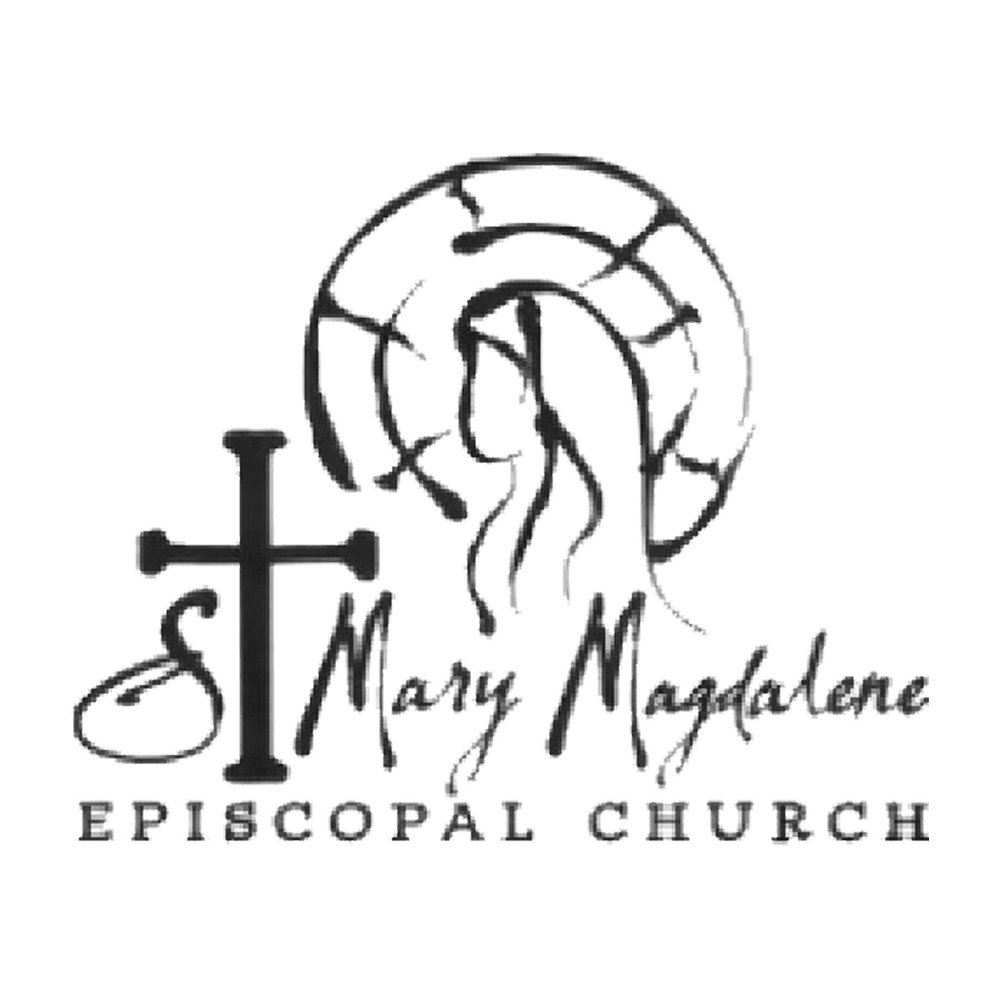The Feast of St. Mary Magdalene
Sunday, July 27, 2025
The Rev. David Wilcox
Today we celebrate the Feast of St. Mary Magdalene—our sister in Christ, our patron in discipleship, and the first person to witness and proclaim the Resurrection. She stands at the very heart of the Gospel story, and yet for much of Christian history, her witness has been overlooked, misunderstood, or reduced. But when we return to Scripture and the tradition of the Church, we find a woman of remarkable depth—healed by Jesus, faithful to the end, called by name, and commissioned as the apostle to the apostles.
It is this pattern: healed, faithful, called, and commissioned which I would like to focus on today, because I believe that it is not only the arc of Mary’s life but the pattern of the discipleship that we are called to share.
The Gospel of Luke tells us that Mary Magdalene was healed by Jesus: “seven demons had gone out from her.” That’s the Bible’s way of saying her suffering was complete. Seven is the number of fullness. Her pain—spiritual, emotional, or physical—had taken over her life
And yet Jesus saw her. He restored her. He healed not only her body but her mind, her dignity, her place in the community. His grace reached into the depths of her affliction and brought her back to life.
That’s where her discipleship begins—not with strength, not with achievement, but with grace.
And that is where ours begins, too.
Every one of us carries wounds—wounds of the body, yes, but also of the mind, the heart, the spirit. We carry shame, fear, grief, anger and regret. And often we imagine we must fix ourselves before we come to Jesus. But Mary’s story tells us the opposite: healing comes first. Grace comes first. We come broken, and Christ meets us there.
As today’s collect says: “By your grace, heal us from all our infirmities…” Not just the visible ones, but the hidden ones. The old scars. The buried griefs. The quiet exhaustion. The deep questions.
Healing is not a prerequisite to being loved by Christ. It is the fruit of being loved by Christ.
After she is healed, Mary follows Jesus with remarkable devotion. She is part of the company that travels with him, provides for him, and remains near him even when others flee.
And on the morning of the Resurrection, while it is still dark, she comes to the tomb. She doesn’t know what she’ll find. She isn’t expecting the stone to be rolled away. She certainly doesn’t expect to see Jesus alive. But she comes anyway.
That is what faithfulness looks like. It’s not always triumphant. It’s not always clear-sighted. Sometimes faithfulness is simply showing up, even when you’re grieving, even when it’s dark, even when hope feels far away.
Some of you know what that feels like.
You’ve kept praying when it felt like no one was listening.
You’ve come to church even when your heart was heavy.
You’ve loved others through their suffering when you had little to give.
That quiet perseverance is holy. It is the path Mary walked. It is the path Christ honors.
In a world that prizes results and speed, Mary reminds us of the sacred power of presence—of waiting, weeping, watching, and walking faithfully toward Jesus even when the path is painful or unclear.
John’s Gospel paints this powerful, intimate moment: Mary sees Jesus, but she doesn’t recognize him. She thinks he’s the gardener. It’s only when he speaks her name—“Mary”—that her eyes are opened.
One word. One name. That’s all it takes.
That moment reminds us that Jesus doesn’t just come back to life in general. He comes to us, personally. He knows our names. He knows our wounds. He knows our stories. And when he speaks, it’s not just to the crowd—it is to you.
And here’s the question: Do you know him well enough to recognize his voice?
Mary had walked with him. She had listened, learned, served, and loved him. Her life had been shaped by his presence. So when he said her name, something in her soul knew it was him.
That’s the kind of intimacy to which we’re called. Not just belief. Not just belonging. But deep, abiding relationship with Christ.
As the Collect puts it, we are meant to “know [him] in the power of his unending life.” Not just intellectually, but relationally. Practically. Spiritually. The way you know a friend. The way you know a beloved.
That kind of knowing doesn’t happen by accident. It grows in prayer, in Scripture, in silence, in the community of the Church. It grows when we spend time with Jesus and let his story become the story that shapes our lives.
And then comes the call. Jesus says: “Go to my brothers and say to them…”
Mary becomes the first preacher of the Gospel—the first to proclaim the Resurrection. She didn’t wait for the perfect moment. She didn’t wait to have perfect words. She simply shared what she had experienced:
“I have seen the Lord.”
That’s all evangelism is. It’s not about having airtight arguments or public speaking skills. It’s about bearing witness to the presence of Christ in your life. It’s about telling the truth of what you’ve seen, what you’ve heard, what has changed you.
In our second reading, St. Paul says: “The love of Christ urges us on… for anyone in Christ is a new creation… and God has entrusted to us the message of reconciliation.”
Mary is the first to receive that trust. But she is not the last.
You have been entrusted, too.
You have a story. You have a testimony. You have the witness of your life, your love, your perseverance, your healing.
And the world is aching to hear it.
In a culture flooded with cynicism and despair, your voice matters.
In a time when death and violence seem to have the final word, your proclamation of Resurrection is revolutionary.
You don’t need to be famous, or eloquent, or perfect. You just need to be faithful. To love Jesus. To know him. And when he sends you, to go.
So today, as we honor St. Mary Magdalene, I want to challenge us not just to admire her faith from a distance, but to claim her vocation as our own
She was healed—so are we.
She was faithful—so can we be.
She was known by name—and so are we.
She was sent to proclaim—and so are we.
She shows us the shape of Christian life:
Receive grace. Stay near. Know Christ. Speak boldly.
May we live lives that echo hers.
May we become people who can say with full hearts,
“I have seen the Lord.”
And may we go out and proclaim the Good News so that the world might see him too. Amen.

